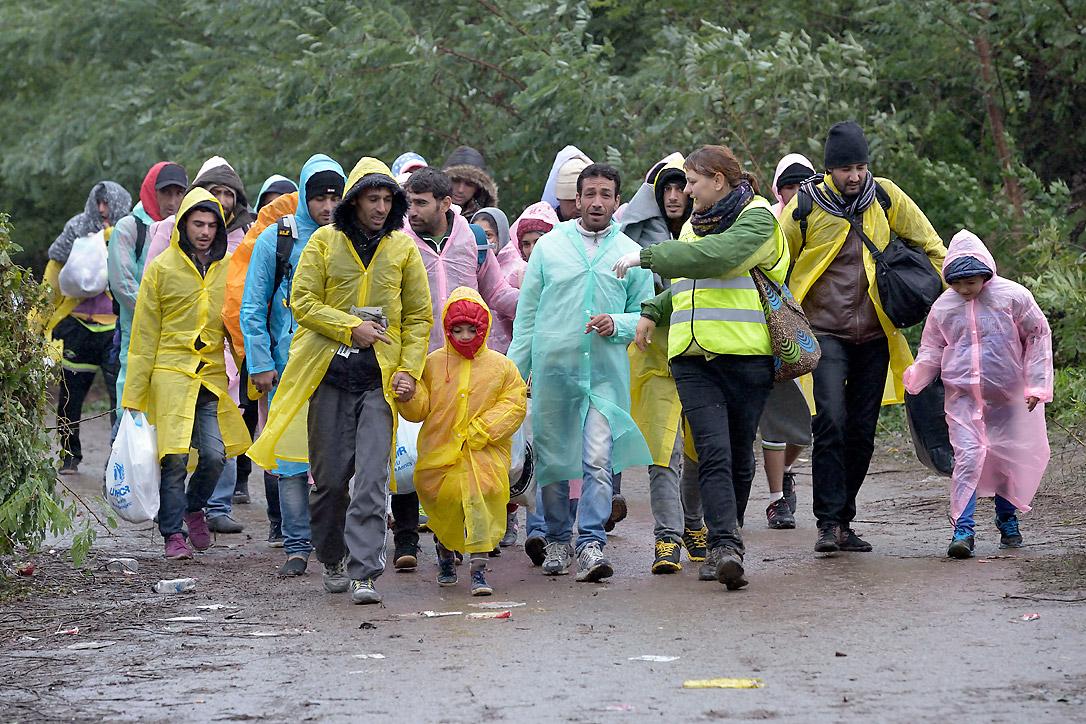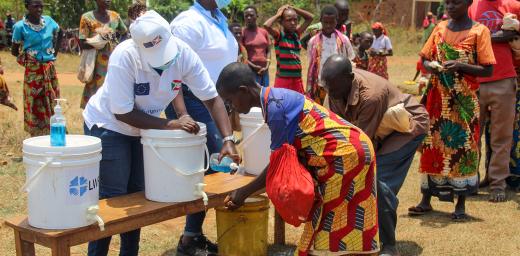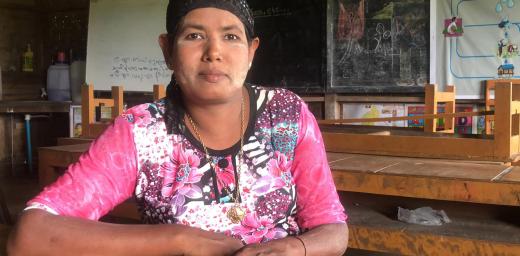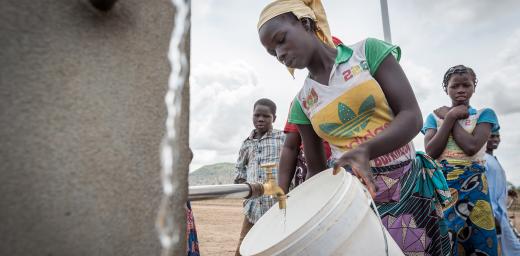Strategies to counter terrorism engender more violence

Escorted by a Czech volunteer (in the high-visibility vest), refugees approach the border into Croatia near the Serbian village of Berkasovo. Photo: Paul Jeffrey
GENEVA, 10 December 2015 (LWI) - The Lutheran World Federation (LWF) marks Human Rights Day today by denouncing both the recent “vicious” terrorist attacks “in many cities on many continents” and the “unacceptably high death toll” in actions to counter terrorism in Syria.
Quoting from the Universal Declaration of Human Rights, LWF President Bishop Dr Munib A. Younan and General Secretary Rev. Dr Martin Junge remind the international community of States that “disregard and contempt of human rights result in barbarous acts that have outraged” the conscience of humanity.
They express LWF’s grave concern that the disproportionately massive airstrikes on Syria do not have a United Nations mandate. These attacks further erode legal instruments that the international community has painstakingly developed over the years to address conflict and war.
While terrorism must be countered and its root causes addressed, military power alone will not resolve terrorism’s vicious cycle of violence, the LWF leaders say.
States must analyze lessons learned from previous responses and define approaches that are applicable today. The so-called “coalitions of the willing,” have not only failed to stem the tide of extremism, but can be seen as “a major contributor to its growth.”
The Lutheran leaders plead for civilian protection in war zones and “generous” humanitarian assistance, without discrimination, to victims of violence and persecution. This includes protecting and welcoming refugees.
LWF provides support to refugees and internally displaced people from Syria and other countries in conflict. The president and general secretary refer to the exacerbated pressure military intervention has on civilians. “When they do flee, these refugees all too often come up against increased restrictions in too many countries.”
They urge political and religious leaders to utilize inter-cultural and inter-religious engagement to build peace where conflicts are in part justified with religious motivations.
“There is a duty to counter terrorism and to bring it to a halt; there is a grave risk that current strategies will achieve the opposite,” Younan and Junge conclude.





